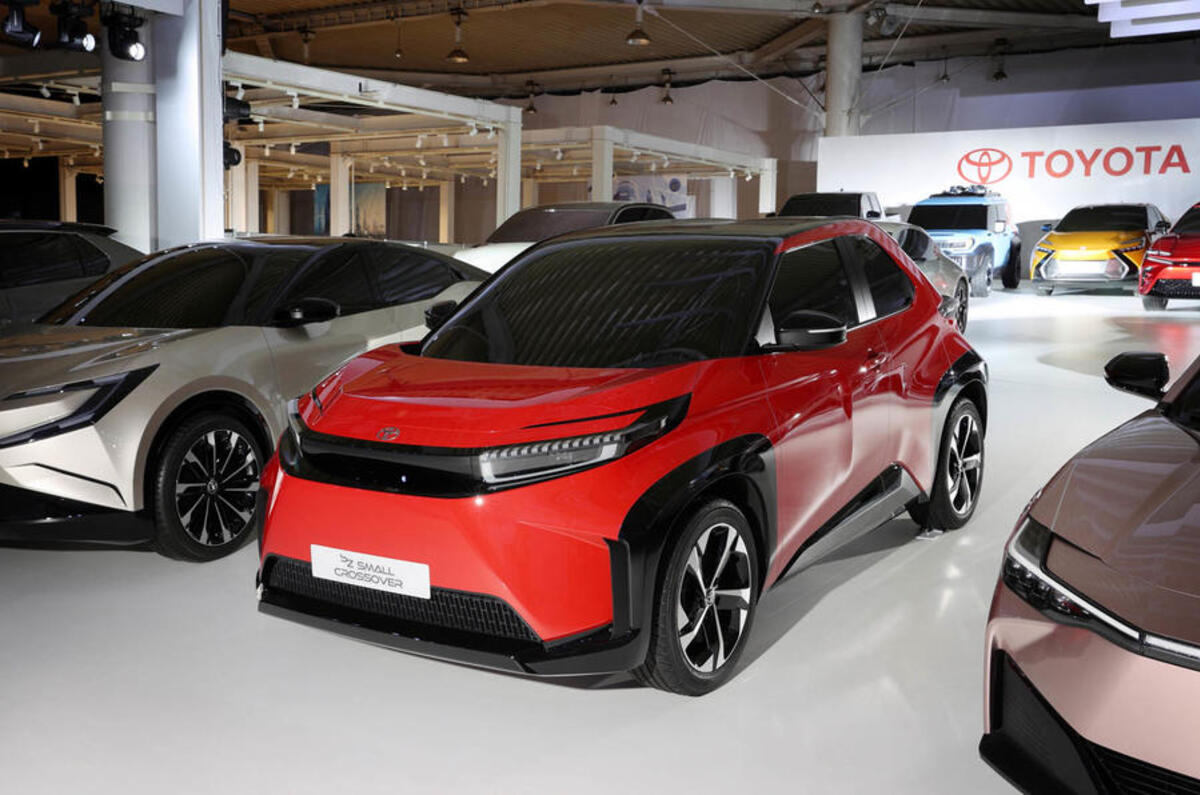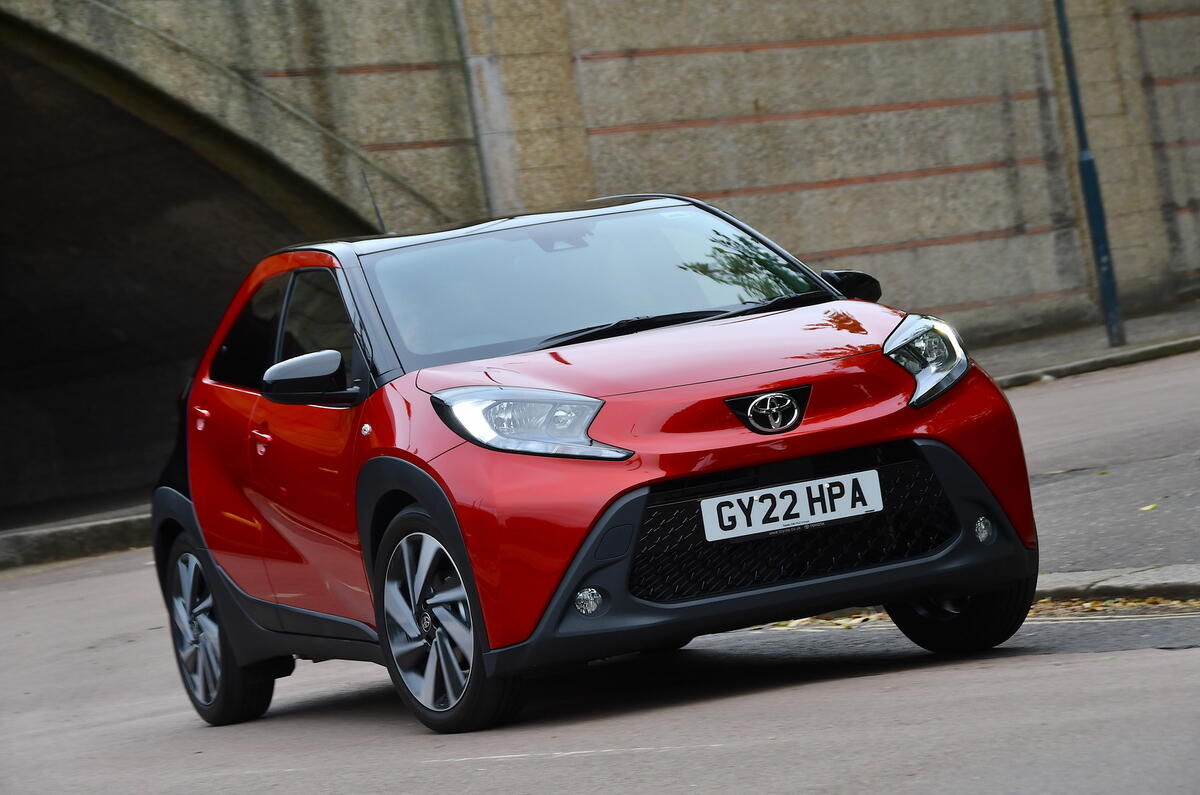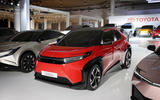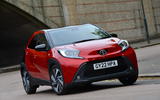Toyota has no immediate plans to offer a small, cheap electric car due to the high cost of battery materials, making the prospect of an electric Aygo X unlikely.
Rival brands including Volkswagen, Renault and Kia have each confirmed plans to offer compact, entry-level electric cars at around £25,000 in the next two years, but Toyota says its cheapest EV for the foreseeable future will be the production version of the new Urban Crossover concept, expected to cost around £32,000.
Asked why Toyota has no plans to enter this space, or indeed the nascent €20,000 EV segment, the brand's product development boss Andrea Carlucci said there is still a "premium attached to electric cars" and that there needs to be a "substantial shift in the cost of batteries" before a value electric supermini can be produced profitably at scale.
"We cannot achieve that level at the moment," he added. As a result, Carlucci said, the Urban Crossover will be the entry point into Toyota's EV line-up for now, raising questions as to what will become of the Aygo X-sized electric supermini concept Toyota showed in 2021.
Dubbed the 'Small Crossover', this squat, raised runaround has not been seen since it appeared as part of Akio Toyoda's unveiling of 15 concept cars two years ago, while several other concepts from that group have heavily evolved and are due to hit showrooms imminently.
Indeed, it is not one of the five new electric SUVs Toyota will launch between now and 2026. Carlucci clarified that a €25,000 Toyota EV is not an impossibility: "I didn't say we don't need an offer there - I'm just observing where the market is today."
"I know there is a tendency to go lower-end, which is very obvious," he said, but suggested that the technical compromises associated with more affordable electric cars would be a barrier to uptake: "If I look at accessible and affordable components on the market, [...] it means that the offer for a battery-electric vehicle is limited - then we have to really look into the price range."
He said the narrative about electric cars "should move into honesty, and exactly what the customer would take".
Toyota will therefore not immediately seek to offer an electric car in the vein of the Aygo X, "unless something changes dramatically in the marketplace, which means if you want to stay in the market you have to go there".
But, Carlucci said, Toyota will not shift its focus wholesale to the SUV market. "We have nameplates like Yaris, which for me are the signature of the brand in Europe, more than any other cars," he said, hinting at plans to directly replace its big-selling hatchback with an EV in the future.











Join the debate
Add your comment
Cut the excuses Toyota, before the chinese firms turn you into the next Nokia.
So, if batteries cost too much, why aren't they looking at other new fuel products?, can't afford to sit on your hands and wait to see what the other brands do, can you?
You mean like the Hydrogen powered Toyota Mirai Joke.
Toyota stopped making,same with the Clarity they sold in the USA, hydrogen will have its place, maybe not in cars but in HGV types of vehicles,then there's synthetic fuel, Porsche are into it at the moment, whether it becomes viable for all depends on costs and environmental stuff.
I was being sacastic. p.s The Mirai is still in production albeit very limited.
Toyota are still making the Mirai, but even after a couple of years the sales are abysmal, and that's in spite of huge subsidies from Toyota and (for fuelling stations) public funds. Every now and then there is a hydrogen related news release, but it always seems to be of a trial nature, and only viable then thanks to public funding.
Fuel cell cars were a good idea about 20 years ago, but before they even got off the drawing board the huge advances and price reductions in batteries rendered them obsolete for most road transport use, certainly passenger cars. The idea is only being kept alive by companies who have already invested a lot of time and money in hydrogen - Toyota being the most obvious.